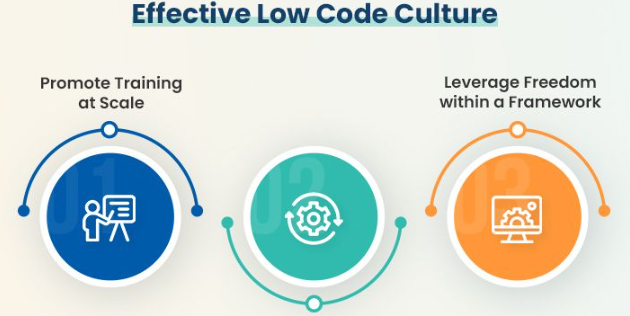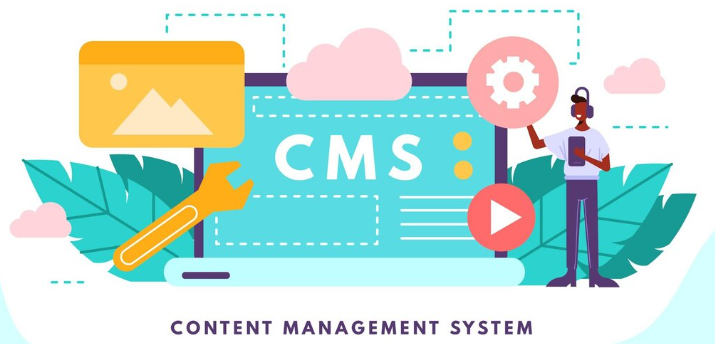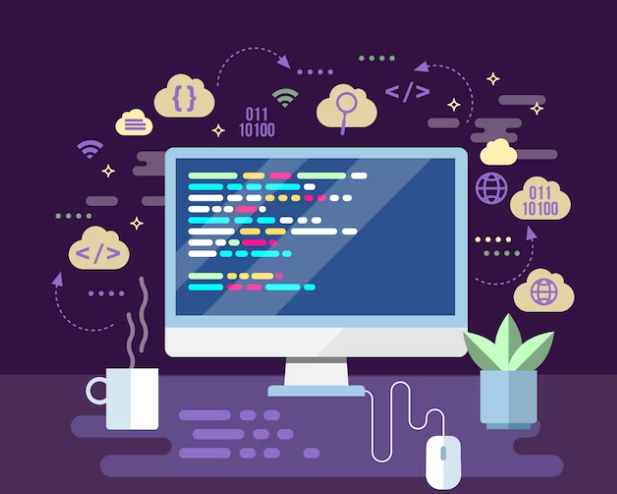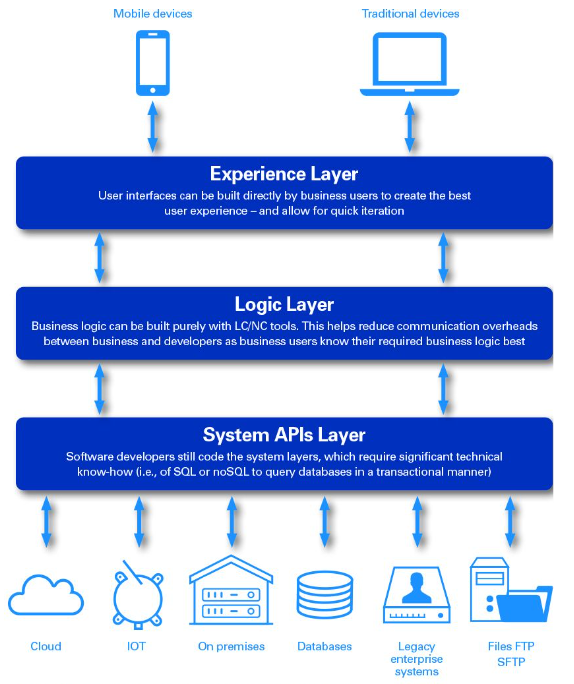How do Low-Code/No-Code platforms empower citizen developers in SaaS?
 FxisAi - Yagnesh Pandya
FxisAi - Yagnesh Pandya 
Introduction
In the ever-evolving realm of Software as a Service (SaaS), two powerful trends are reshaping how we build, deploy, and interact with software.
This article embarks on a comprehensive journey into the landscape of Low-Code/No-Code platforms and the transformative role of Artificial Intelligence (AI) in SaaS.
From empowering citizen developers to enhancing software functionality, these innovations are revolutionizing the way we approach technology.
Empowering Citizen Developers with Low-Code/No-Code Platforms
Democratizing Development:
Low-Code/No-Code platforms are breaking down barriers to software development. These solutions empower individuals with diverse backgrounds, known as citizen developers, to participate in the creation of applications without intensive coding expertise.
Explore how this democratization of development is fostering innovation and accelerating the pace of application delivery.
Rapid Application Development:
Traditional software development can be time-consuming, but Low-Code/No-Code platforms streamline the process.
With drag-and-drop interfaces and pre-built components, citizen developers can rapidly create functional applications.
This section delves into the speed and agility offered by these platforms, transforming ideas into working software at unprecedented rates.

Enhanced Collaboration:
Low-Code/No-Code isn't just about speeding up development; it's also about fostering collaboration.
Discover how these platforms facilitate communication between technical and non-technical team members. This collaborative environment encourages cross-functional participation, ensuring that the end product meets the needs of all stakeholders.
Reduced IT Backlog:
The burden on IT departments is alleviated with the adoption of Low-Code/No-Code. Citizen developers can address their needs independently, reducing the backlog of IT requests.
Learn how this shift in responsibilities promotes efficiency, allowing IT teams to focus on more complex tasks while empowering others to handle routine development.
Scalability and Flexibility:
Low-Code/No-Code platforms provide scalability, allowing organizations to expand their application portfolio without straining resources.
Dive into the flexibility these platforms offer, adapting to evolving business requirements and ensuring that the software landscape remains agile and responsive.
Role of Artificial Intelligence in Enhancing SaaS Functionality

Cognitive Insights and Automation:
AI is elevating SaaS functionality by providing cognitive insights and automation. Explore how machine learning algorithms analyze data, offering actionable insights that drive intelligent decision-making.
From automated workflows to predictive analytics, discover how AI is transforming the way SaaS platforms operate.
Personalization and User Experience:
SaaS applications are becoming more user-centric with AI-driven personalization. Uncover how AI tailors user experiences based on preferences, behavior, and historical data.
This section explores the impact of personalized interfaces on user satisfaction and engagement within SaaS platforms.
Advanced Data Processing:
The vast amounts of data generated by SaaS applications are harnessed by AI for advanced processing. Delve into how AI algorithms handle data analytics, uncovering patterns, trends, and anomalies.
Understand the role of AI in turning raw data into meaningful insights that drive informed business decisions.

Chatbots and Virtual Assistants:
Communication within SaaS platforms is evolving with the integration of AI-driven chatbots and virtual assistants. Discover how Natural Language Processing (NLP) enables seamless interactions, improving user support, and enhancing overall user experiences.
Explore the benefits of intelligent conversational interfaces within SaaS applications.
Predictive Maintenance in SaaS:
AI is playing a crucial role in predictive maintenance within SaaS platforms. Learn how machine learning algorithms analyze system performance data to predict potential issues before they occur. Understand the significance of AI in preventing downtime, optimizing performance, and ensuring the reliability of SaaS applications.
Challenges, Considerations, and Future Trends
Challenges in Low-Code/No-Code Adoption:
While Low-Code/No-Code platforms bring numerous benefits, challenges exist. Explore the potential drawbacks, including concerns about scalability, customization limitations, and the balance between ease of use and application complexity.
Ethical Considerations in AI:
AI in SaaS raises ethical considerations, from bias in algorithms to transparency in decision-making. This section delves into the importance of ethical AI practices, ensuring fairness, accountability, and responsible deployment within SaaS applications.

Future Trends in Low-Code/No-Code and AI:
As technology continues to evolve, this section provides insights into future trends. From the integration of AI-driven automation in Low-Code platforms to the emergence of even more intuitive No-Code solutions, explore what lies ahead for these transformative technologies in SaaS.
Conclusion
The convergence of Low-Code/No-Code platforms and Artificial Intelligence within the SaaS ecosystem marks a paradigm shift in how software is developed, deployed, and experienced.
Empowering citizen developers, enhancing functionality, and driving intelligent automation, these innovations are reshaping the digital landscape.
As organizations embrace the democratization of development and the intelligent capabilities of AI, the future of SaaS unfolds with unprecedented possibilities, promising a more accessible, agile, and intelligent software landscape for businesses and individuals alike.
For more insights into AI|ML and Data Science Development, please write to us at: contact@htree.plus | F(x) Data Labs Pvt. Ltd.
#SaaSTransformation #AIDrivenSaaS #TechInnovation #FutureTech #CodeLessBuildMore #DigitalRevolution
Subscribe to my newsletter
Read articles from FxisAi - Yagnesh Pandya directly inside your inbox. Subscribe to the newsletter, and don't miss out.
Written by

FxisAi - Yagnesh Pandya
FxisAi - Yagnesh Pandya
Business Developer with IT - AI & Data Science